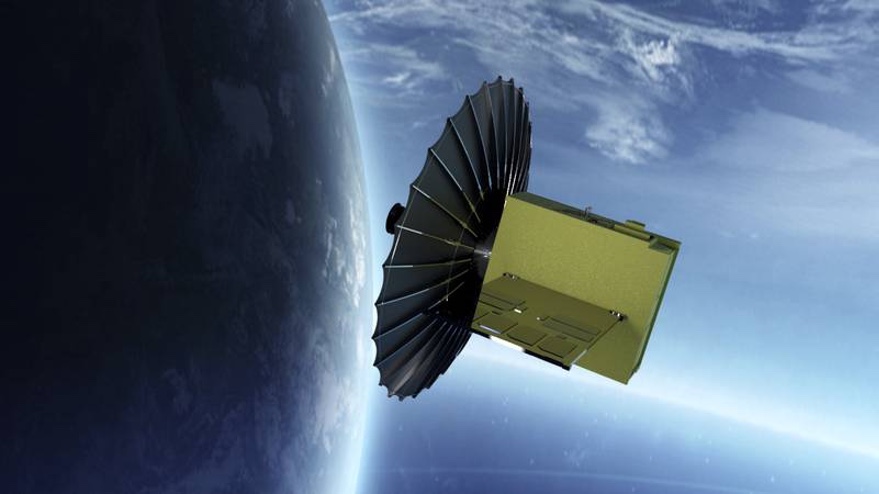WASHINGTON — The United Arab Emirates will develop a radar satellite constellation as part of a new fund worth more than $800 million to support the country’s space sector.
The UAE government announced July 17 plans for a synthetic aperture radar (SAR) satellite constellation called Sirb, Arabic for a flock of birds. The constellation will be developed over six years, with the first satellite scheduled to launch in three years.
The UAE Space Agency offered few details about the Sirb satellites, other than that they will be small satellites will operate in X-band. The agency did not disclose the budget for the system or the number of satellites planned. An illustration released by the agency showed a cubesat-class satellite with a deployable antenna.
“SAR technology leapfrogs traditional imaging satellites, providing more powerful imaging using X-band radar technologies,” Sarah Al Amiri, chair of the UAE Space Agency, said in a government statement. “These small-scale satellites are more agile, faster to develop and more powerful, an indicator of the types of new generation systems that technology is now making possible.”
The UAE plans to seek bids for at least some aspects of the system. In the statement, the government said it would request proposals for development of satellite components as well as for launch, operations and a commercialization plan. The project will include opportunities for both Emirati and international companies.
The Sirb constellation is the cornerstone of a new National Space Fund also announced July 17, with the government committing to spend 3 billion dirhams ($817 million) on space projects such as Sirb.
“The National Space Fund will encourage global partnerships to establish themselves here in the Emirates, providing new and vital technology platforms and development to answer the needs of the UAE Space Program and other global customers for vital innovation and technologies that answer the needs and possibilities of today’s world,” Salem Al Qubaisi, director general of the UAE Space Agency, said in a statement.
The government did not announce what other projects are under consideration for support by the new fund or how long the fund will operate. Al Amiri said that the fund “is precisely targeted at building opportunities for international cooperation in building Emirati enterprises.”
The UAE government has emphasized space as one area of growth for the country as it works to diversify its economy. Its highest profile initiative in that area is the Emirates Mars Mission, or Hope, a Mars orbiter launched two years ago. The country is now pursuing a “Beyond Mars” mission that would fly by Venus and several asteroids, with launch planned in 2028.
The country also has a small astronaut corps, with one person who flew on a short-duration Soyuz mission to the International Space Station in 2019. In April, the UAE’s Mohammed bin Rashid Space Centre signed a contract with Axiom Space for a long-duration ISS mission launching as soon as the spring of 2023. The Emirati astronaut to fly that mission, yet to be announced, will take a seat that Axiom acquired from NASA as part of a three-way deal with Roscosmos last year to obtain a Soyuz seat for a NASA astronaut.
